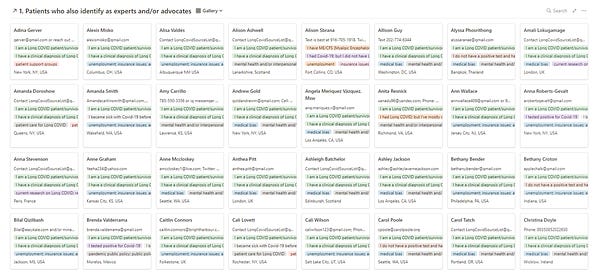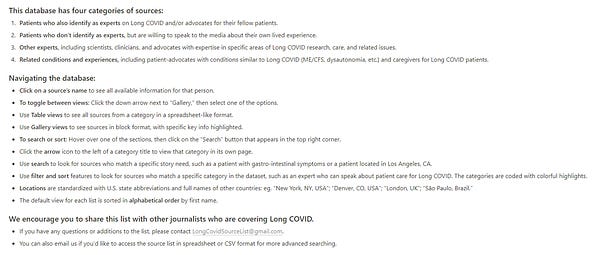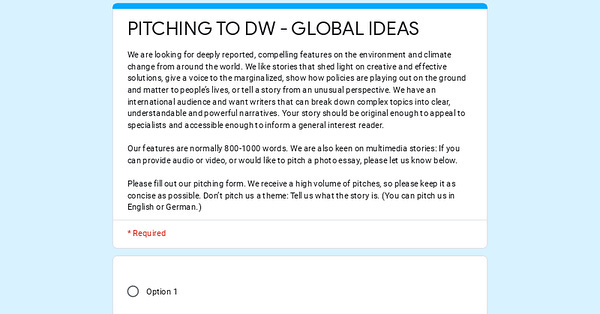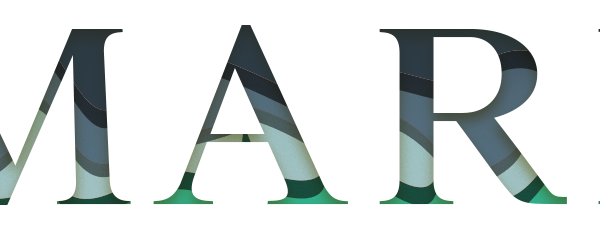✍️Science Writing News Roundup #76 (January 16, 2022)
Reporting on omicron? Here's what to know + The best transcription tools
🪂 Resources
The best transcription tools: 6 useful options for turning audio and video into text.
New ICFJ initiative: Helping journalists cover global crises
Podcast: Environmental Journalism, Part 4: Global crisis, local perspectives.





🔭 Opportunities
NF Fest, organized by the Nonfiction Chicks in February, is a month-long crash course in writing nonfiction for children. Participants will learn the craft from 28+ authors and illustrators through daily posts. Daily activities will get you writing and researching in small steps.
Ted Scripps Fellowships in Environmental Journalism at the University of Colorado, Boulder. The fellowship is open to full-time journalists working in any medium who are interested in deepening and broadening their knowledge of environmental issues.







🏝️ Articles
Media leaders think their own climate journalism beats the industry average. Among respondents’ suggestions for improving coverage were two points Covering Climate Now often makes: Play the story big and make it part of every beat in the newsroom.


🎺 News
Three projects to improve science journalism receive funding from journalists' associations. The Spark Grant Initiative (SGI), run under the auspices of the World Federation of Science Journalists (WFSJ), has selected its first three winning ideas, coming from South America, Africa and Asia, to improve the coverage of sciences in the general media.

🎬 Videos
Improving the coverage of science and race in a time of reckoning.
Science Journalism Panel - Advice for New Writers with Apoorva Mandavilli, Arielle Duhaime-Ross, and John Rennie: Part 1 (click here), Part 2 (click here) and Part 3 (click here)
📆 Events
Covering Coronavirus: How Two Top Reporters Navigate COVID Confusion: In this webinar, award-winning journalists Helen Branswell of STAT and Katherine J. Wu of The Atlantic discuss their strategies for staying ahead of an ever-changing story. (January 19, 2022)
Covering the Climate Crisis: What You Need to Know (January 20, 2022)
How to Help Children, Teenagers and Young Adults Cope with the Anxiety of the COVID-19 Pandemic (January 20, 2022)
ABSW Award Lecture 2022, The future of science journalism: perspectives from two winners from the 2021 ABSW Awards (January 27, 2022)
From scientist to science writer: How to break into a career in popular science writing (February 3, 2022)
Online Science Journalism Course for journalists from Central and Eastern Europe (February 8th, 10th, 15th, and 17th)
Virtual NASW Internship Fair and Meet & Greet at AAAS 2022 (February 19, 2022)
💡 Jobs and internships
Science Writing Internship, The Princeton University, NJ
Climate Reporter, Mother Jones, Remote
Science Writing Editor, Great Minds, Remote
Script Editor – Crash Course, Complexly, US-based
Writer – Crash Course, Complexly, US-based
Writer and Social Media Manager, University of Maryland, College Park, MD
Science Editor, WIRED, London, UK
Communication Officer, Wellcome Sanger Institute, Cambridge, UK
More jobs 👉 Science Writing News Roundup #75
👉 Don’t miss any updates from the Science Writing News Roundup:
Thanks for reading. How about sharing this with a friend? Worried you missed something? See previous newsletters here. What would you like to see in the newsletter? Please send me your suggestions by replying to this email: sciencewriting@substack.com😃


